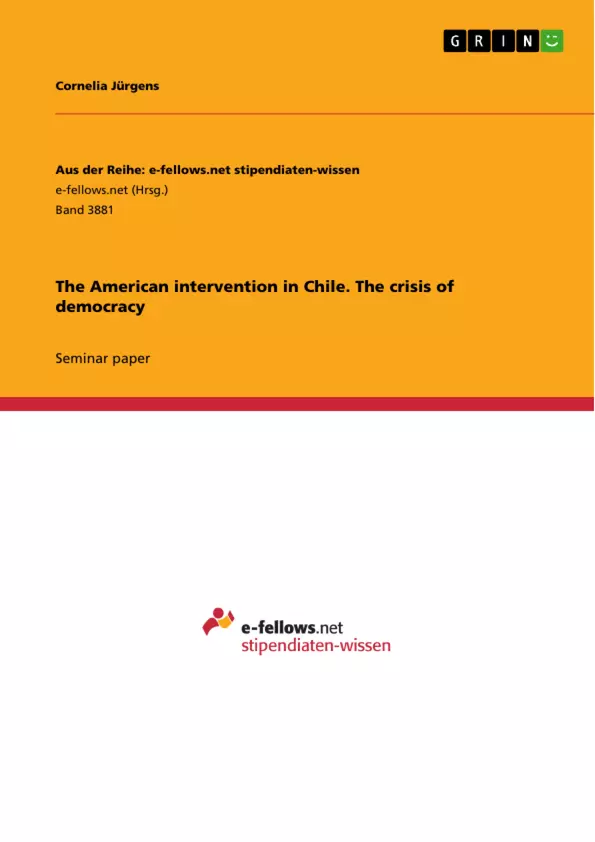On the 11th of September 1973, Salvador Allende, the democratically elected president of Chile, was deposed by a military coup that brought the dictator Augusto Pinochet to power. Allende died shortly after in what has been presumed to be suicide.2 The involvement of the American government and Kissinger in particular in these events has been a topic of heated debate. To what degree did American conceptions of democracy contribute? And how was its own democratic image hurt by it?
This paper explores the way American conceptions of democracy influenced its actions in the Chilean coup of 1973. In order to do this, it first discusses the debate surrounding its actions in Chile itself. Did the US intervene to protect democracy? Or was there a – to them – more important reason that took precedence over it? Then, it turns to a discussion of the US government's actions after the fact to bring more nuance to the topic and ask whether its ideal of democracy had anything to do with it.
Table of Contents
- Introduction
- 1. American democracy as a reason for its intervention in Chile?
- Chile is only one of several countries in which American influence or covert use of force has been reported in the past few decades.
- 2. The American image as a guarantor of democracy..
- Conclusion...
Objectives and Key Themes
This text explores the influence of American conceptions of democracy on its actions in the Chilean coup of 1973. It examines the debate surrounding the US's actions in Chile and its efforts to preserve its image as a guarantor of democracy after the coup.
- The role of American democracy in its intervention in Chile
- The impact of the Chilean coup on the US's democratic image
- The relationship between American foreign policy and the Cold War
- The implications of the US's actions in Chile for democratic peace scholarship
- The limitations of the argument that American interventions are driven by a commitment to democracy
Chapter Summaries
- Introduction: This chapter sets the stage for the analysis by outlining the historical context of the Chilean coup and the involvement of the US government, particularly Henry Kissinger and the CIA. It introduces the key questions that the text will address, namely the extent to which American conceptions of democracy contributed to the coup and how the US's democratic image was affected.
- 1. American democracy as a reason for its intervention in Chile?: This chapter delves into the debate surrounding US involvement in Chile, exploring whether the intervention was motivated by a genuine desire to protect democracy or by other, more strategic concerns. It examines the arguments made by democratic peace scholarship and challenges their validity in light of the US's actions in Chile.
Keywords
The main keywords and focus topics of the text include American democracy, Chilean coup, US intervention, Cold War, democratic peace scholarship, foreign policy, image, democratic image, and human rights.
Frequently Asked Questions
What happened during the Chilean coup of 1973?
On September 11, 1973, the democratically elected president Salvador Allende was deposed by a military coup, leading to the dictatorship of Augusto Pinochet.
What was the role of the US government in the Chilean coup?
The involvement of the US, particularly Henry Kissinger and the CIA, has been a topic of debate, focusing on whether they actively supported the removal of Allende.
Did the US intervene in Chile to protect democracy?
The paper explores this question, contrasting the official "pro-democracy" image with strategic Cold War interests that may have taken precedence.
How did the intervention affect the US's international image?
The coup hurt the American image as a guarantor of democracy, leading to criticism of US foreign policy and its commitment to human rights.
What is "democratic peace scholarship" in this context?
It is a theory that democracies rarely go to war with each other, which the text challenges in light of the US actions against the democratic government of Chile.
- Citation du texte
- Cornelia Jürgens (Auteur), 2021, The American intervention in Chile. The crisis of democracy, Munich, GRIN Verlag, https://www.grin.com/document/1119517



